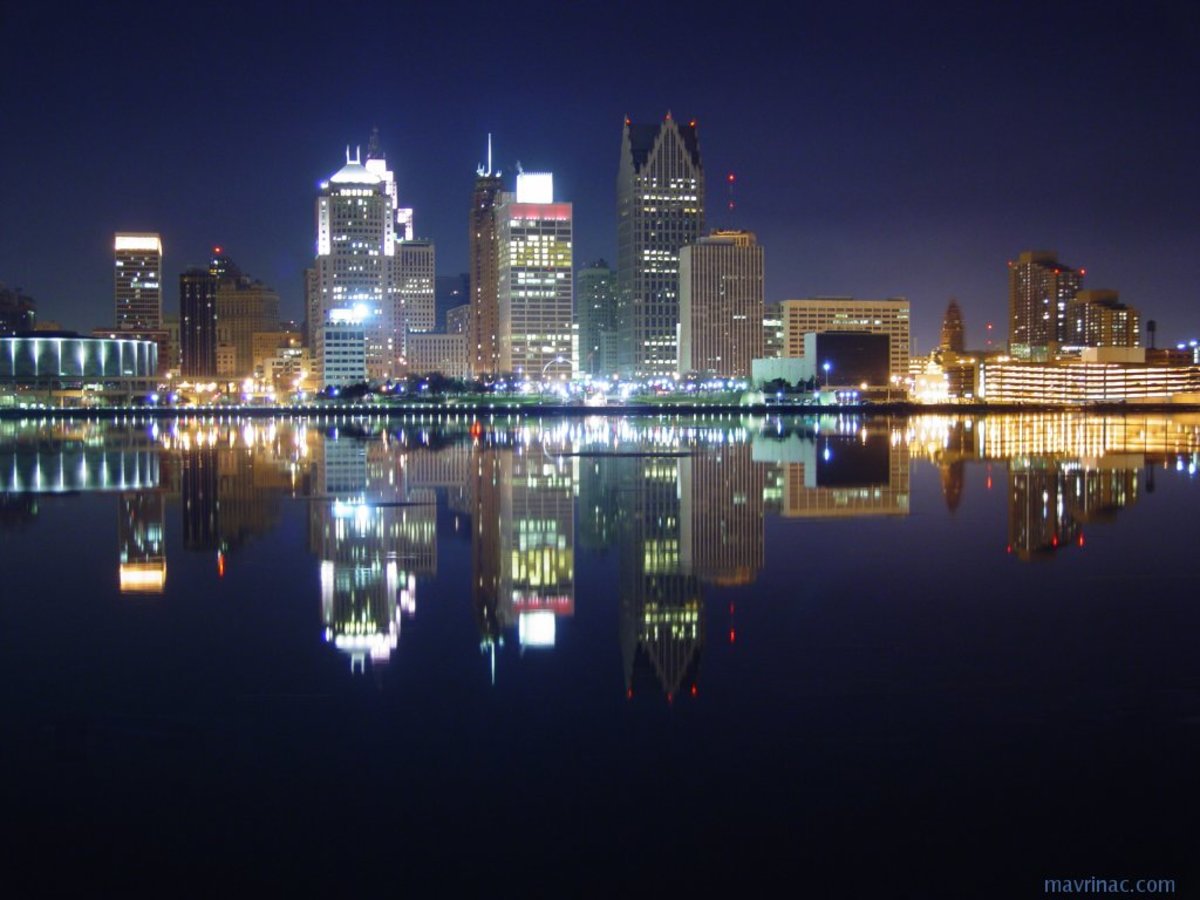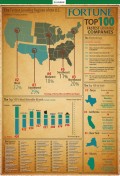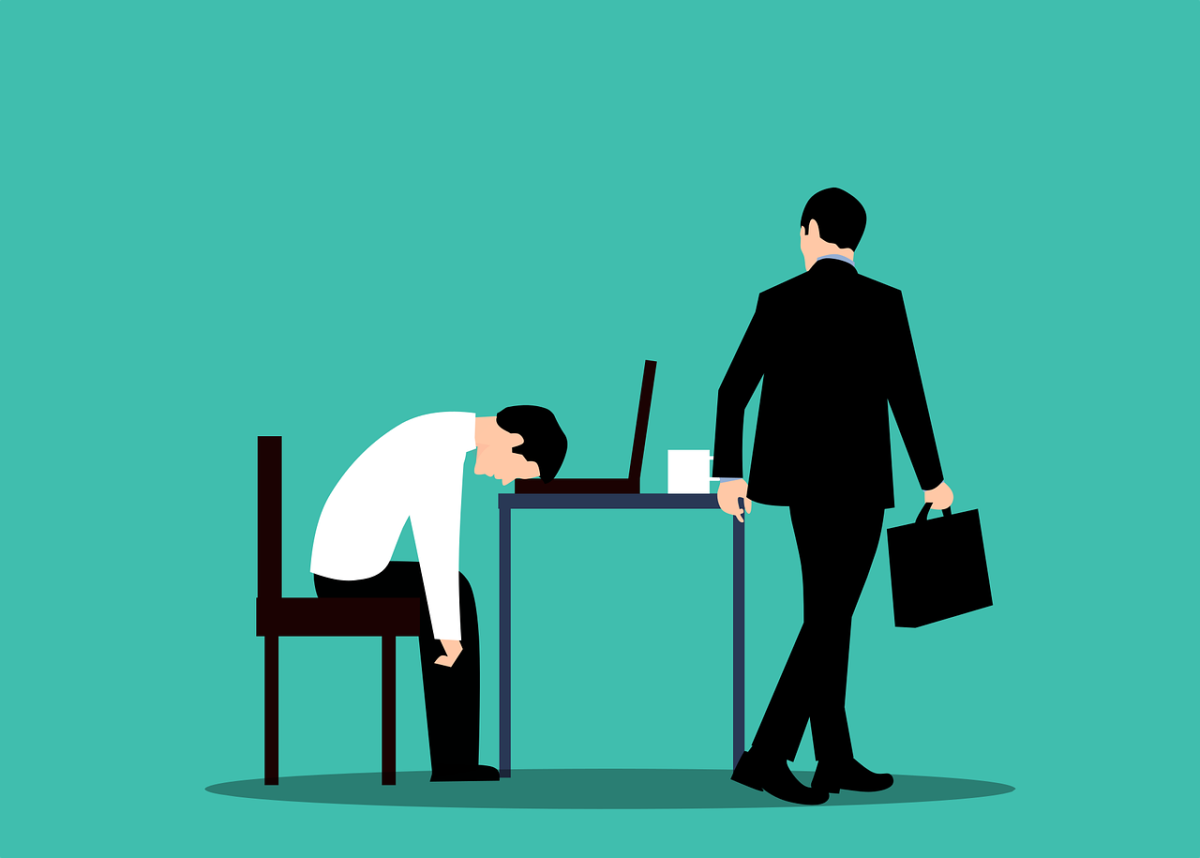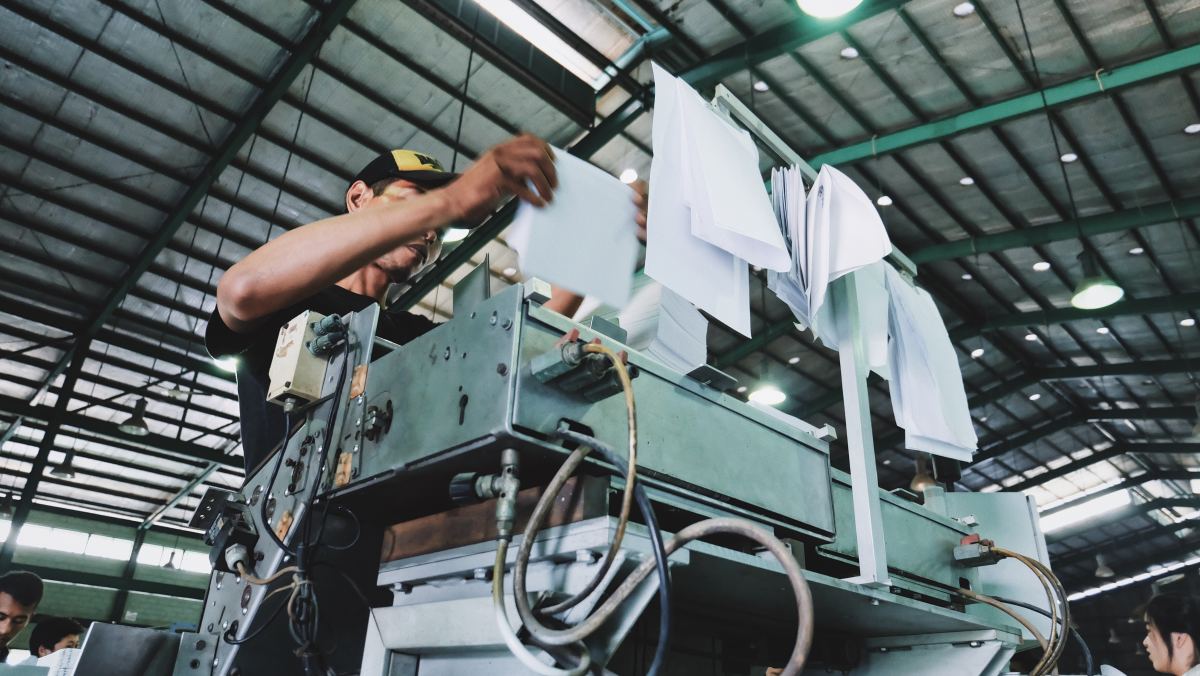The Reason We Need Labor Unions
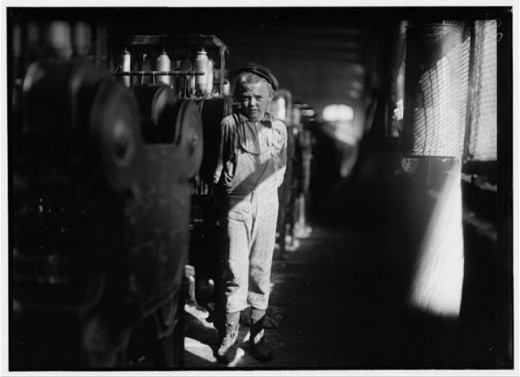
The Poor Barely Survive
Early one Saturday morning, before darkness gives way to light, you awake your groggy child for yet another long, arduous day and night of work at the factory or coal mine. Imagine that. Imagine sending your six year old or your twelve year old off to a factory or a coal mine to work for fourteen to nineteen hours a day? And, not just five days a week; but, seven! It's hard to imagine, maybe even impossible. Your ancestors couldn't imagine it either. How could anyone conceive of it? However, many of your ancestors had no choice. They did not have unions to protect them from the greedy endeavors of corporation leaders who were allowed to work them until they bled for wages that amounted to little more than enough to feed one person.
Unsafe Work Conditions and Injuries to Children
Corporate bullies and economic struggles, along with an instinct to, simply, survive, forced them to send little Johnny or Julie away from the safety of their debilitating farms and into the dangerous jaws of these hazardous corporations. Instead of fretting that their child might skin a knee at the playground, they feared that their child might come home from work without that knee; or, they could, quite commonly, not come home at all. Children were often left maimed or killed by faulty equipment. Oftentimes, Johnny or Julie's mother worked along side them, watching them be beat, verbally abused, and weighted, a technique used as a form of punishment if they were late for work or performed under par. "An overseer would tie a heavy weight to {the child} worker's neck, and have them walk up and down the factory aisles so the other children could see them and "take example." This could last up to an hour."
In Unions There Is Strength
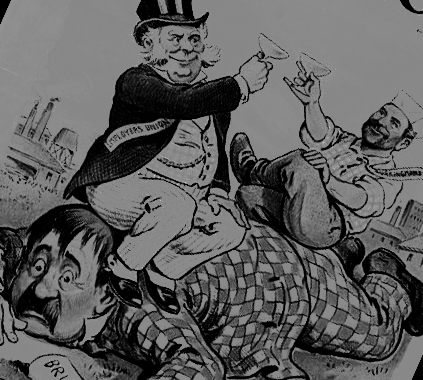
Recognizing Social Injustice and Doing Something About It
These were the worries of your people -- our people -- the things that made them water their pillows by night and silently curse the ground they walked on by day. These were the things that parents worried about before Labor Unions with more equal numbers stood against corporate leaders and won.
While industries grew and industry leaders became rich at the expense of the safety, dignity, and health of women and children, unions of good, caring people began to form an alliance that would, gradually, carry mother and child out of the clutches of these money hungry mongrels and put them back in the safety of their mother's arms. As a result, labor unions gained the respect of good, hardworking people; and, they grew and grew. And, as they grew, they recognized more and more injustices dished out by many of the kingpins of the corporate world and force fed to the "lowly" laborer. In the years since then, labor unions continued to fight, as they still do, diligently, for disadvantaged workers and against the corporate bullies who intimidate them with threats of low wages, little or no benefits, unsafe work conditions, and inadequate job security, to name a few.
The Rich Keep Getting Richer
Just as not all children or workers are bullies, not all executives are bullies. Some executives treat their employees with respect and decency. Their management strategies aren't designed to intimidate and degrade their workers. They are able to put themselves in their employee's shoes and treat them the way they would want to be treated. In recent years, many union and non-union corporations have been popping up with CEO's who offer their employees all the benefits anyone could ask for and then some; most of them are thriving. However, there are still many, many more that would turn this into a third world country, if given the chance. Somebody has to protect the laborer from those people and their tactics and history has shown that the Labor Union is successful in doing that.
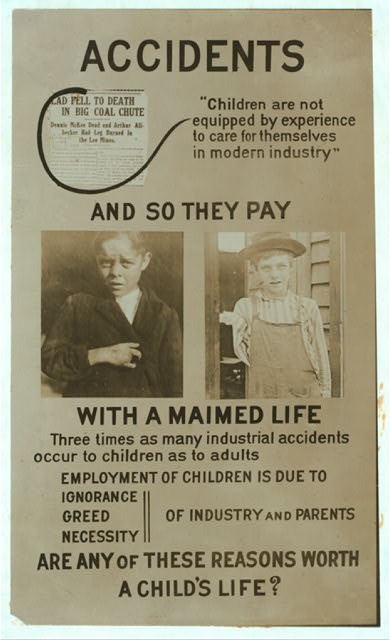
The Blame Game
Many CEO's and executives have run their company's into the ground. With pocket's overflowing from the muscle and sweat of their workers, they pack up and close the doors. They never look back to see who's left out in the cold. They couldn't care less. With their bankbooks in hand and their backs to the wind, they blame the laborers. They blame the unions. Never-mind that their homes are larger than two football fields, their vehicles cost more than a small island in the Bahamas, and they travel to exotic places more often than most people go to the grocery store. Maybe they attended college for years, maybe they knew somebody in high places, or maybe they were simply lucky enough to have landed a position where the most difficult part of their day is deciding how long to stay at lunch while they work their employees through their lunch. When the company goes under they blame their overworked and underpaid employees for its demise. They take no responsibility for the major role they played in the downfall.
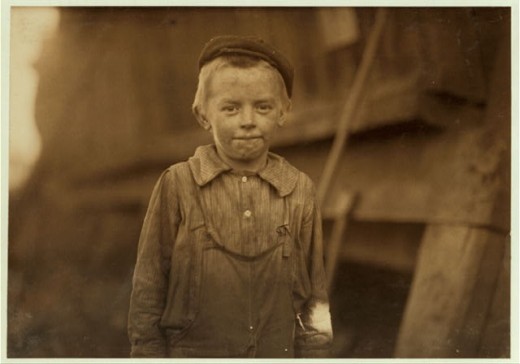
Unfair Practices
Some companies survive by the skin of their teeth as CEO's suck up its profits while leaving nothing but tiny bubbles to the people who broke their backs to bring the profits in? Not only have those CEO's sucked up all the profits, but they also, try to shift the cost of covering health insurance benefits and retirement funds back onto the employee. In addition, they give their employees unreasonable work hours. And, when they want to put another buck in their pockets, they lay off or fire employees for no just reason. Stealing their employee's lunch money isn't enough for them anymore. They try to make them pay to play in the park. These CEO's and executives are much bigger than the lone laborer. If they had their way, Johnny and Julie would still be slaving away in some dilapidated warehouse. Thankfully, the union stopped them. The union has been taking a stand for the people for over a century. If the people fail to take a stand for the union, the people will lose. We, the people, will lose. Our great, great grandchildren will surely be awakening their children every cold, dark morning of the week to send them off to work in some dilapidated building for wages that will barely provide enough food to fill their tiny, little bellies. We won't be here to help them then. We have an obligation to save them now.
Sugar beet workers, Sugar City, Colorado. Mary, six years, Lucy, eight, Ethel, ten. Family has been here ten years. Children go to school in the winter. See Hin
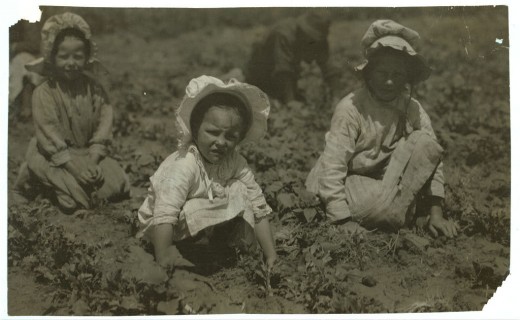
Unions Work For The Laborer
Labor unions negotiate contracts with corporations to ensure that all laborers are compensated fairly for the work they perform. Most non-unionized companies start their workers with minimum wage or slightly above it. Realistically, people who earn minimum wage or slightly above with no other income are living in poverty. However, the people at the top of the company live high on the hog.
Unions ensure that corporations give their laborers a decent piece of the pie and earn a livable wage. Not only do they negotiate for better wages, but also, to ensure that their members have a decent retirement plan. When the time comes for a union member to retire after devoting much of his or her life and time to the company, labor unions ensure that they will get their just reward. The members gave their blood, sweat, and, tears for it. They've earned it.
In addition, some companies do not offer paid sick leave. Illnesses, sometimes, put people out of service for days or weeks. Most people would have terrible financial problems if they became ill. However, negotiations ensure that union members receive paid sick days. Many companies found a way around the union rules and regulations by hiring part-time workers who could not join the union and could not qualify for any sick pay or benefits. Many of these workers are required to work fluctuating schedules. Not only do they have to work different shifts from one day to the next, but they may also be required to work two hours in the morning and then come back in the afternoon to work two more.
Even though, many large companies, continuously, succeed year after year when treating their employees respectfully, many others, eventually, fail because most of their CEO's place their concerns more on the company profits than on building a fair, integral relationship with the employees.
Labor unions fight with the corporations for their members rights. For an employee to go up against the corporation on their own when trying to keep from being suspended or fired would not be a fair fight. For example, when people have to go to court, they normally get a lawyer to fight for them against the opposing lawyer mainly because the lawyer knows all the rules and can provide a much better defense. That's the same role the union plays for it's member when the company tries to treat them unjustly. Having the union in their corner gives them a gigantic edge on winning their case against the company. In fact, most workers who are not union members, including those who belong to Right To Work states, have no chance to defend themselves at all. When they're fired, they're fired.
Some people claim that Right to Work states have no negative effects on the laborer or the economy. They claim that this only gives people another option and allows them to make a choice as to whether or not they want to join a union. However, most people that work for companies that belong to unions already have a choice as to whether or not they want to join. In fact, these people have the right to work for the company and not pay union dues while still reaping in the benefits that unions provide. The money a laborer pays to belong to a union not only provides protection from unfair practices for him or her but it also cost the laborer far less than what he or she loses in the decreased wages seen in right to work states. While right to work laws may keep some businesses from moving overseas, the wages they pay their employees keep them from keeping up with the times. These decreased wages bring down the economy for the middle class and force more people into poverty. The additional money corporations save by paying their employees less goes right into the pockets of upper management and executives instead of in the pockets of laborers. Some of these corporate leaders take money from their laborers unjustly through shady means such as dipping into their pensions while putting that money into the pockets of their executives through bonuses. Without the labor union, the laborer doesn't stand a chance. Without the labor uniion, the laborer would be ... toast.
The Loss Of Labor Unions Will Put More People In Poverty
- Poverty - Four Changes to Reduce the Number of People living in It - Exponentially
The gap between the income of a person working full-time earning minimum wage and a minimal calculation of the average cost to maintain a household emphasizes how many people become hopeless and succumb to their fate of economic injustice. Poverty ha

